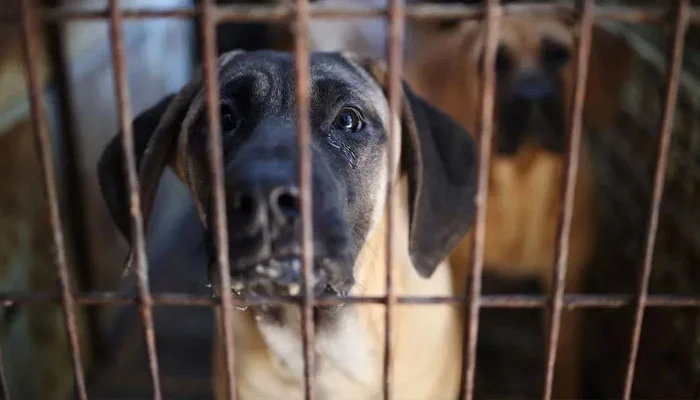South Korea has passed a landmark law banning the slaughter and sale of dogs for meat, marking a major step towards ending a centuries-old tradition of eating dog meat.
The legislation, which is due to come into effect by 2027, does not make eating dog meat illegal, but aims to criminalize the dog meat trade.
Dog meat stew, known as “boshintang”, was considered a delicacy among some older South Koreans, but has declined in popularity, especially among the younger generation. A Gallup poll revealed a sharp decline in dog meat consumption, with only 8% having tried it in the past 12 months, compared to 27% in 2015.
Under the new law, those convicted of slaughtering dogs face up to three years in prison, while individuals found guilty of breeding dogs for meat or selling dog meat can serve a maximum of two years. Farmers and restaurant owners are given a three-year deadline to transition to alternative sources of employment.
The move comes as societal attitudes change, with more people seeing dogs as part of the family, leading to increased support for animal rights. Recognizing the decline in popularity of dog meat, the government aims to support affected farmers, butchers and restaurant owners during the transition.
Also read: How Ecuador plunged into gang violence, sparking armed internal conflict, emergency
While some older individuals, such as 86-year-old Kim Seon-ho, express disappointment and say the tradition dates back to the Middle Ages, the generation gap is evident. President Yoon Suk Yeol and First Lady Kim Keon Hee, known for her love of animals, have advocated an end to the practice.
Animal welfare groups, including the Humane Society of Korea, have praised the ban, which marks a significant change after decades of failed attempts to address the issue.
According to Jung Ah Chae, executive director of the Humane Society of Korea, the ban reflects South Korea’s commitment to a more dog-friendly future.
However, some dog meat farmers argue against the ban, suggesting that the declining popularity among the younger population should be allowed to phase out the practice naturally.







